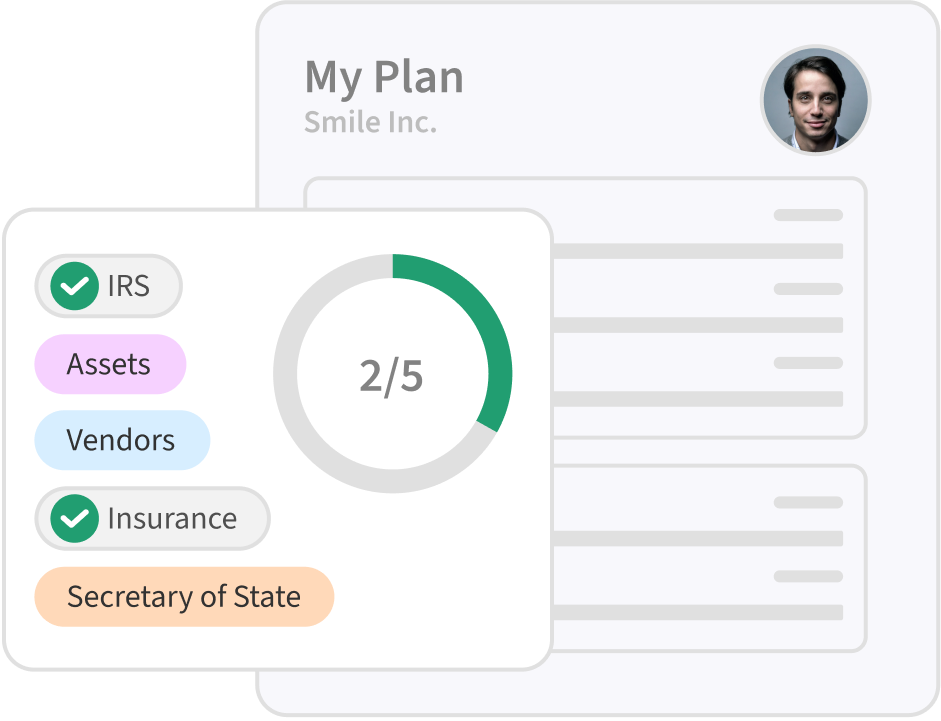If you’ve reached the point where you find your business is no longer viable, you could not obtain the additional funding you needed from investors, you’re running out of cash, or you’re starting a new venture, you may be wondering if it is better to sell or close your business.
The decision to close or sell your business is a difficult one. You’ve put a lot of sweat equity into building your company and if you have partners or members, they also have a lot at stake. Once you’ve decided that it’s time to get out, you have options. And selling your business is a possibility to consider as is simply closing the business down.
Business Worth
The first question is whether the business has any saleable value. A common misconception is that if a business is not profitable that it has no value. However, there is most likely value in your company, such as:
Client lists
Brand presence
Future revenue
Software
Intellectual property (trademarks and copyrights)
Permits and licenses
Talent (employees with specialized skills)
If you aren’t sure about valuation, check Acquire.com or Tiny.com for comparison.
And do not forget that even if your business is not profitable, it is competition to other companies and for that reason alone it has value.
Pros and Cons of Selling vs. Closing
When making the decision whether to continue your business or sell it, think about the following benefits and drawbacks of each path.
Selling Your Business
Pros:
You get some value/liquidity without having to sell off individual pieces
You get the satisfaction of knowing your business is worthwhile and will go on
You walk away after a single all-encompassing transaction
You may be able to negotiate an ongoing role for yourself (with ongoing revenue)
It provides an immediate end to your responsibilities
You provide a safety net for your employees
Cons:
You will have to wait out a lock up period.
Negotiations may be extensive and require a lot of work on your end, not to mention ongoing stress
A non-compete may be required, preventing you from starting or working for a competing or similar business
You may be forced to agree to a payment plan which involves ongoing risk
You could spend months negotiating and have the sale fall through
You may need agreement from your partners, members, VCs, investors, or board of directors to accept a sale
Closing Your Business
Pros:
You don’t have to hire an M&A broker
The process is faster than a sale
You don’t need to hire a business appraiser which can be a difficult expense if your company is already struggling
You close the business on your terms and needn’t worry about what will happen to it in the future
That chapter in your life is completely over and final
There’s no non-compete and you’re free to start any other business you want
You may be able to keep some business assets and use them in a new venture
Cons:
Closing a business requires paperwork and submissions to state and federal agencies
You may have personal financial liability for the debts of the company if there are personal guarantees
You are responsible for working with creditors, vendors, and customers to close things down
Your employees must find other work
You may sever ties with clients, employees, and business contacts
How to Make the Decision
Take some time to envision each path and how it will personally affect you. Talk it over with friends, family, business associates, and investors. IRS.gov offers information about closing your business and SBA.gov offers details about selling and closing.
If you have partners, members, or directors involved, it’s crucial to work through the options together and evaluate how viable a sale actually is (there may be value in your company, but is there a market for it?). You should also discuss the personal financial repercussions if there are personal guarantees at stake on company debt. A business advisor can speak to your board or partners and help you evaluate the options.
When you’ve made the decision to move on from your business, the choice of whether to sell or close down can be complex and emotional. Weighing the pros and cons and getting professional advice can help you make the best decision possible. If you decide to close your business, SimpleClosure.com streamlines the process. Learn more.
FAQs
Why should you shut down a business?
You may consider closing your business if it is not profitable, you want to pursue other opportunities, or you find that it is too time-consuming or stressful to continue.
What is the difference between selling and closing a business?
If you sell a business you transfer ownership of it to another person or company in exchange for a payment. If you close a business you shut it down, discontinuing it completely.
Is selling a business stressful?
Selling a business yourself can be extremely stressful because there are many legal requirements to fulfill and many steps that must be taken. You must find a buyer and ensure that the sale is completed correctly to fulfill all state requirements.

